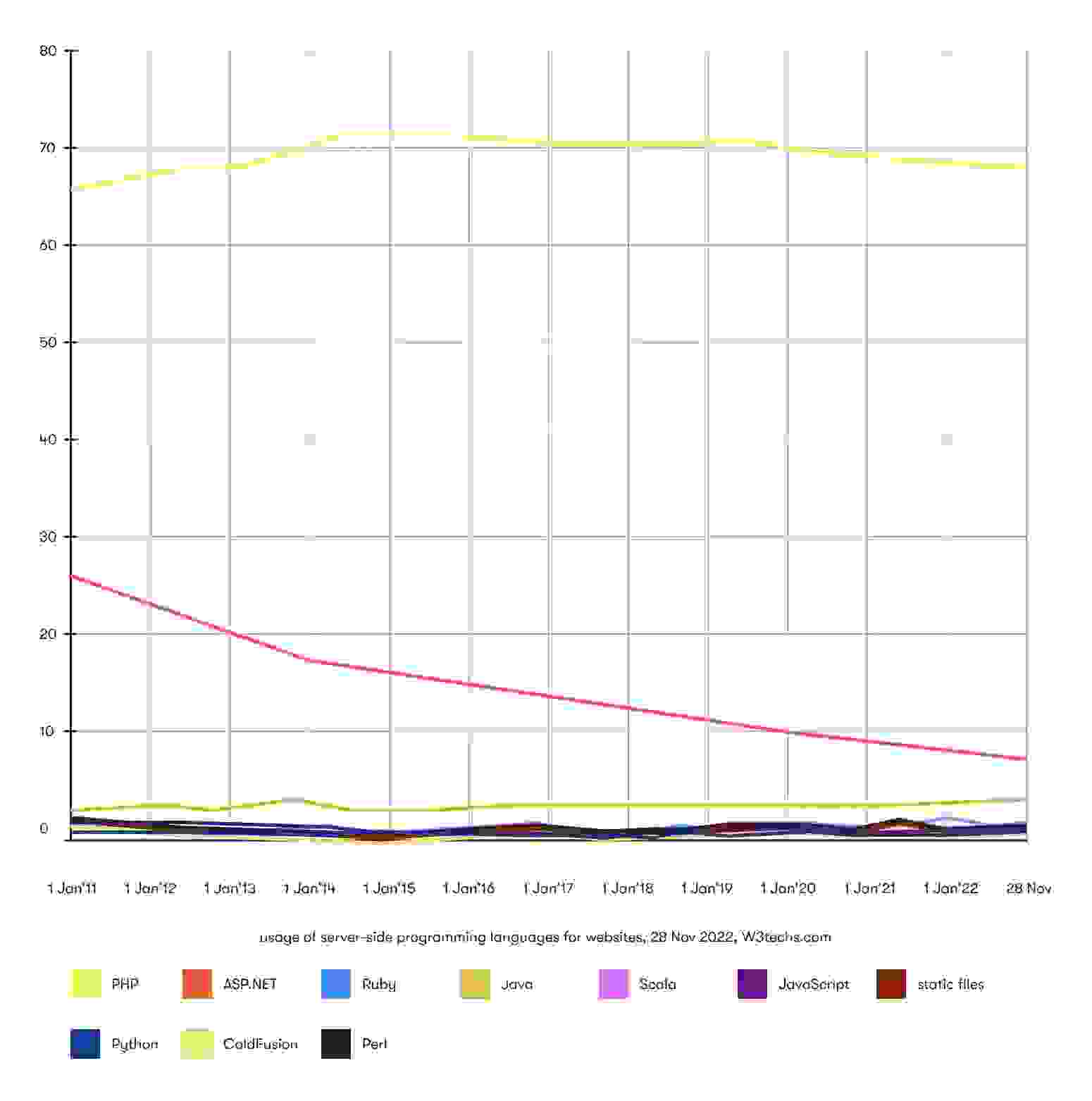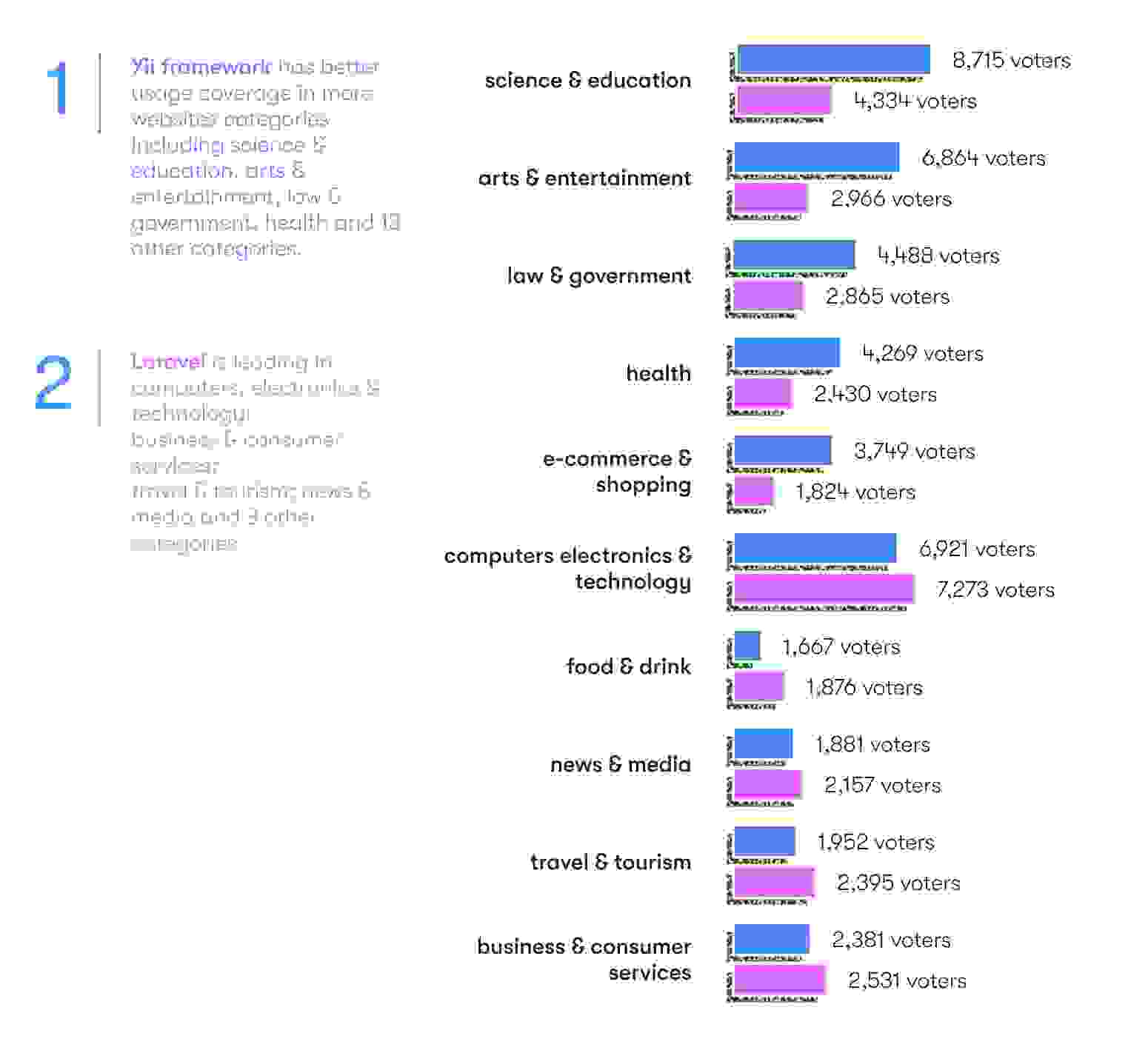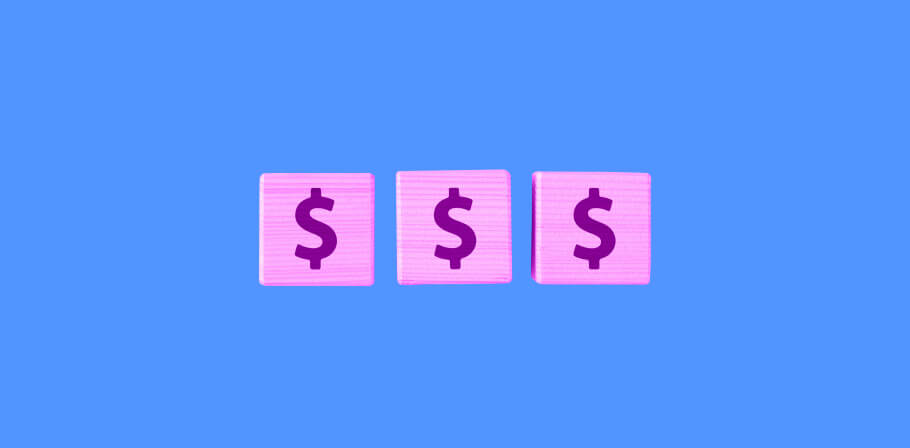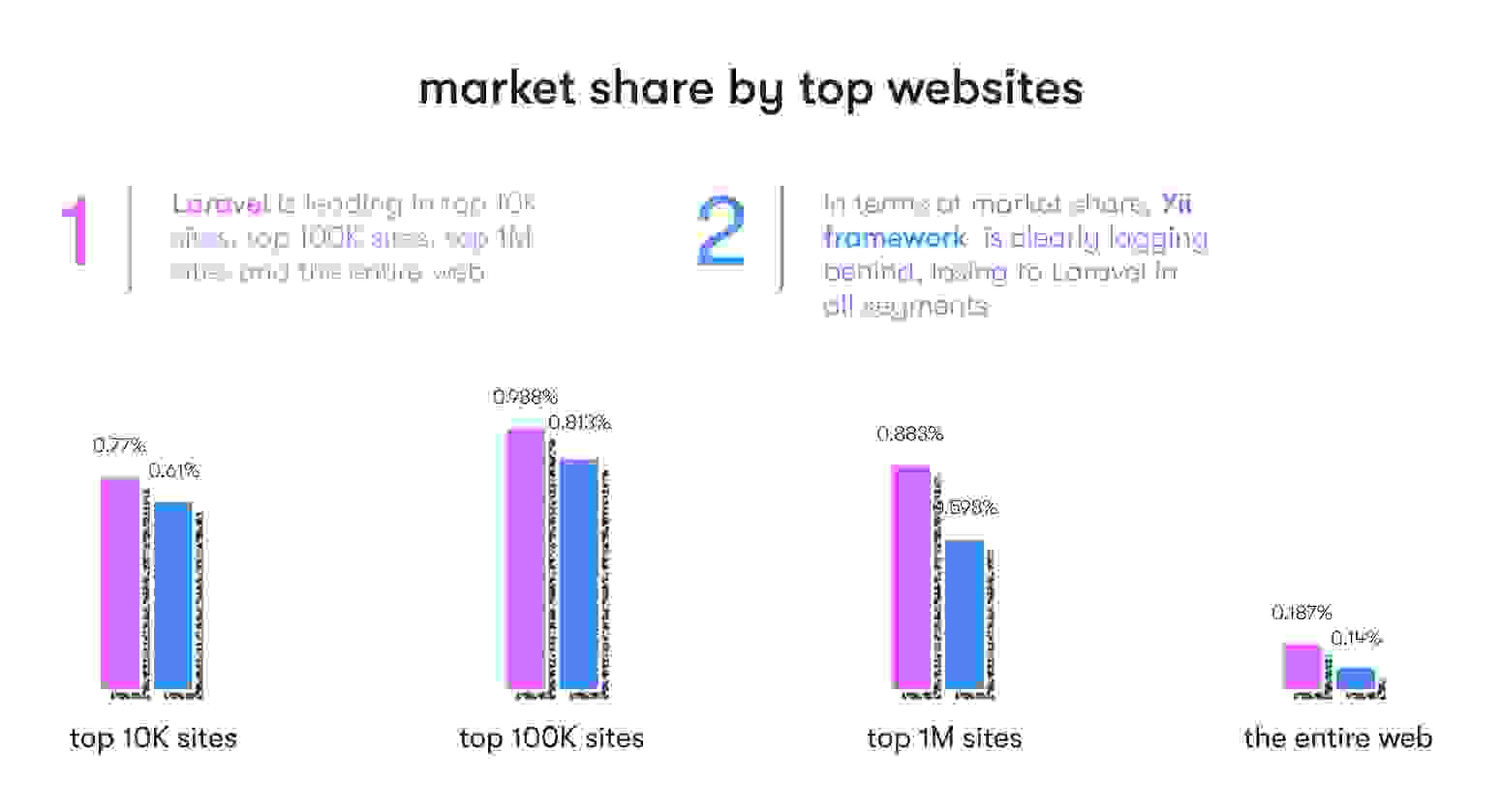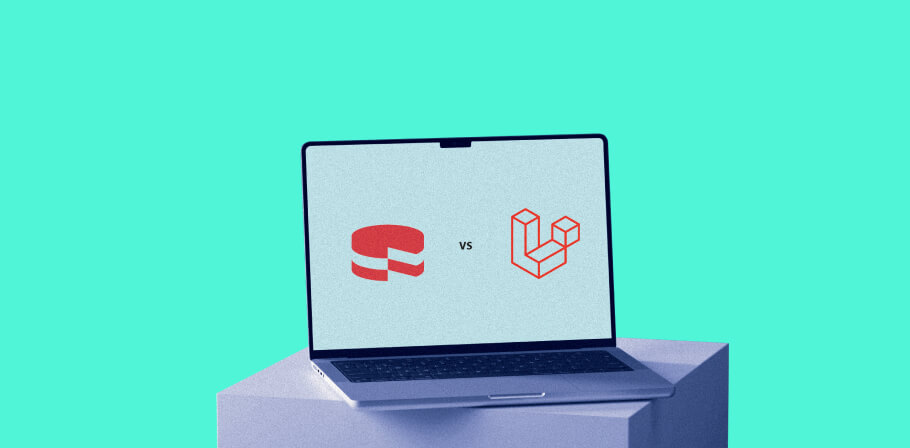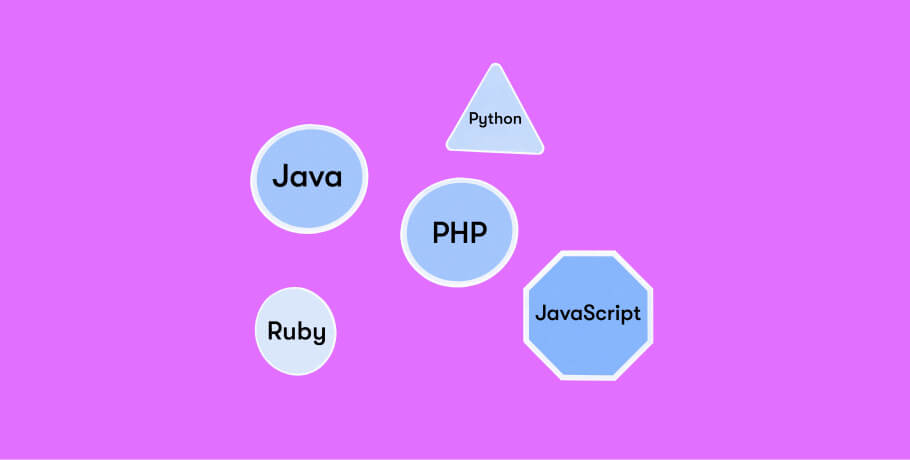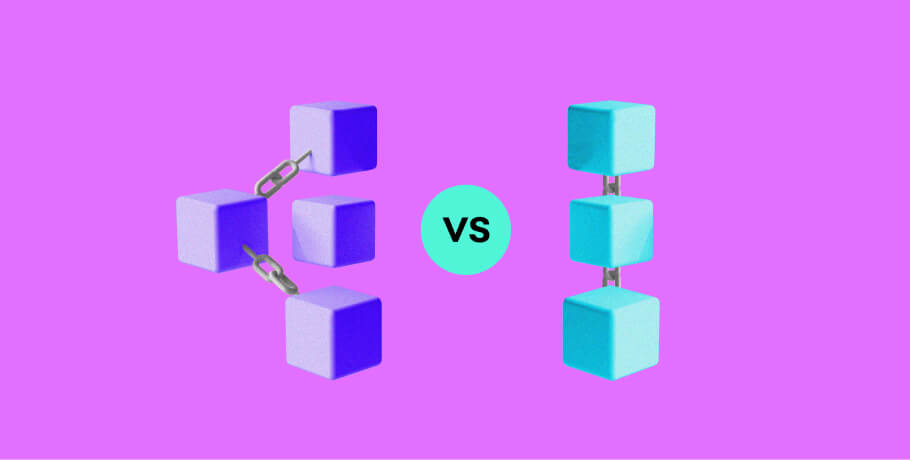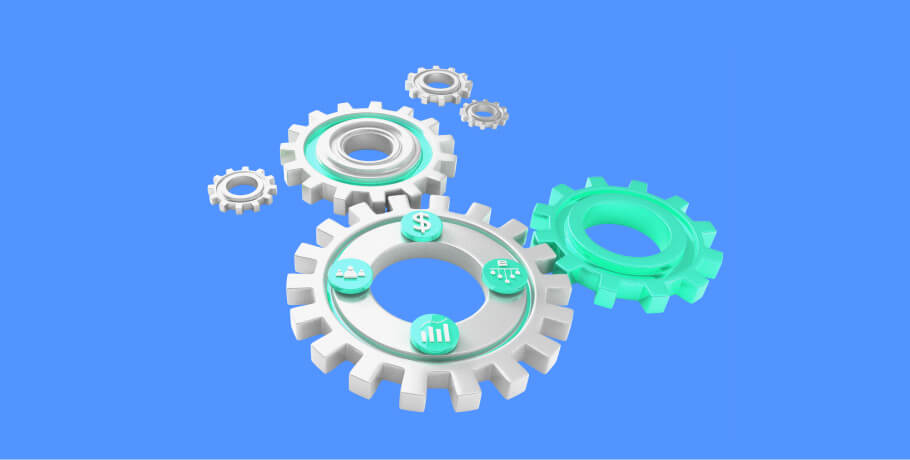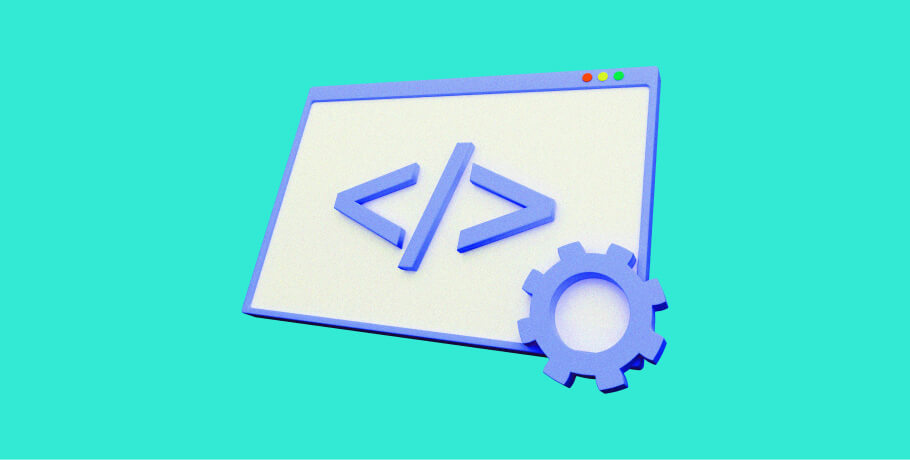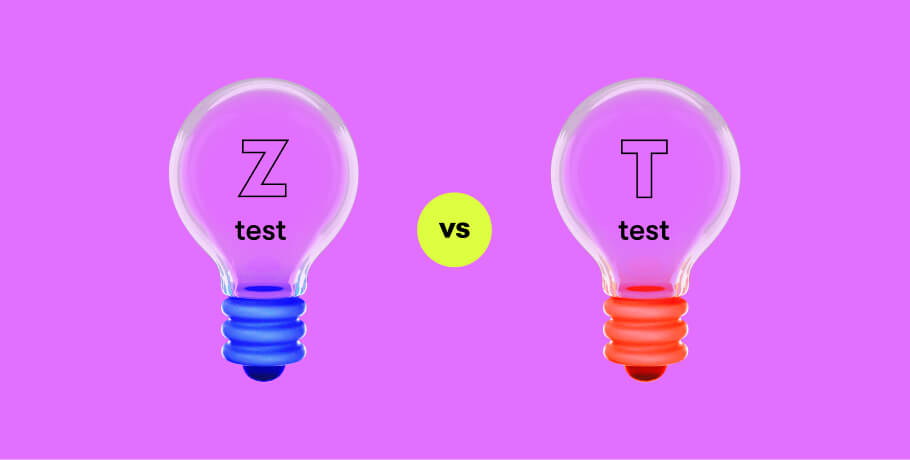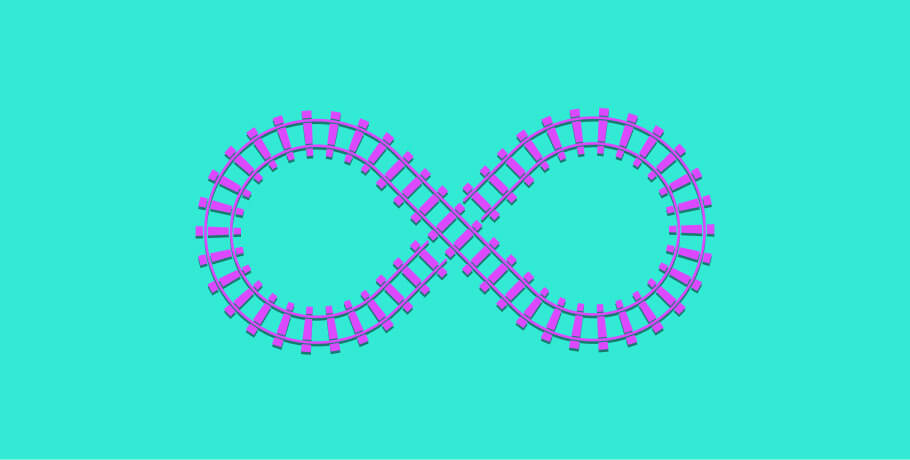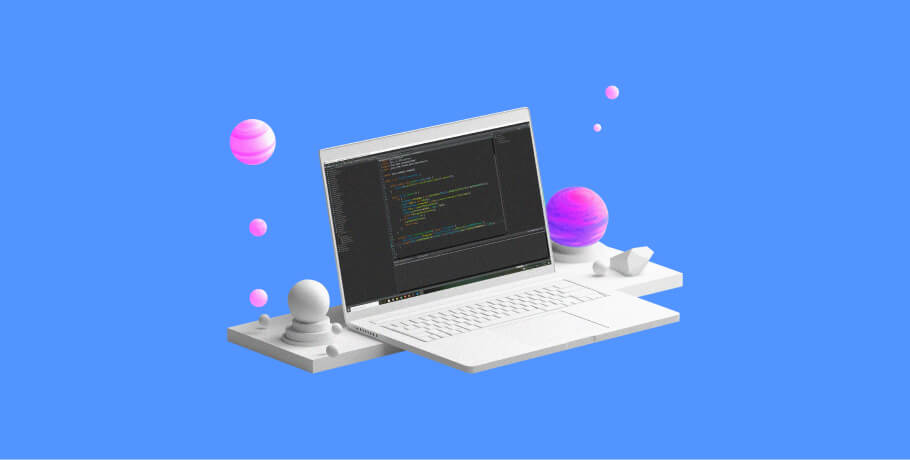PHP is considered to be the most powerful and popular web development tool among all programming languages. Due to the smooth learning curve, free software distribution, and high adaptability, it is used today for the production of all kinds of software products. According to W3Tech, PHP is used in almost 76.5% of Internet websites, including mega-projects such as Facebook, Wikipedia, and Google. More than half of today's content management systems (CMS) are based on it. The community of this programming language is rapidly expanding, and developers are actively arguing which framework is better than Laravel 5 or Yii 2.
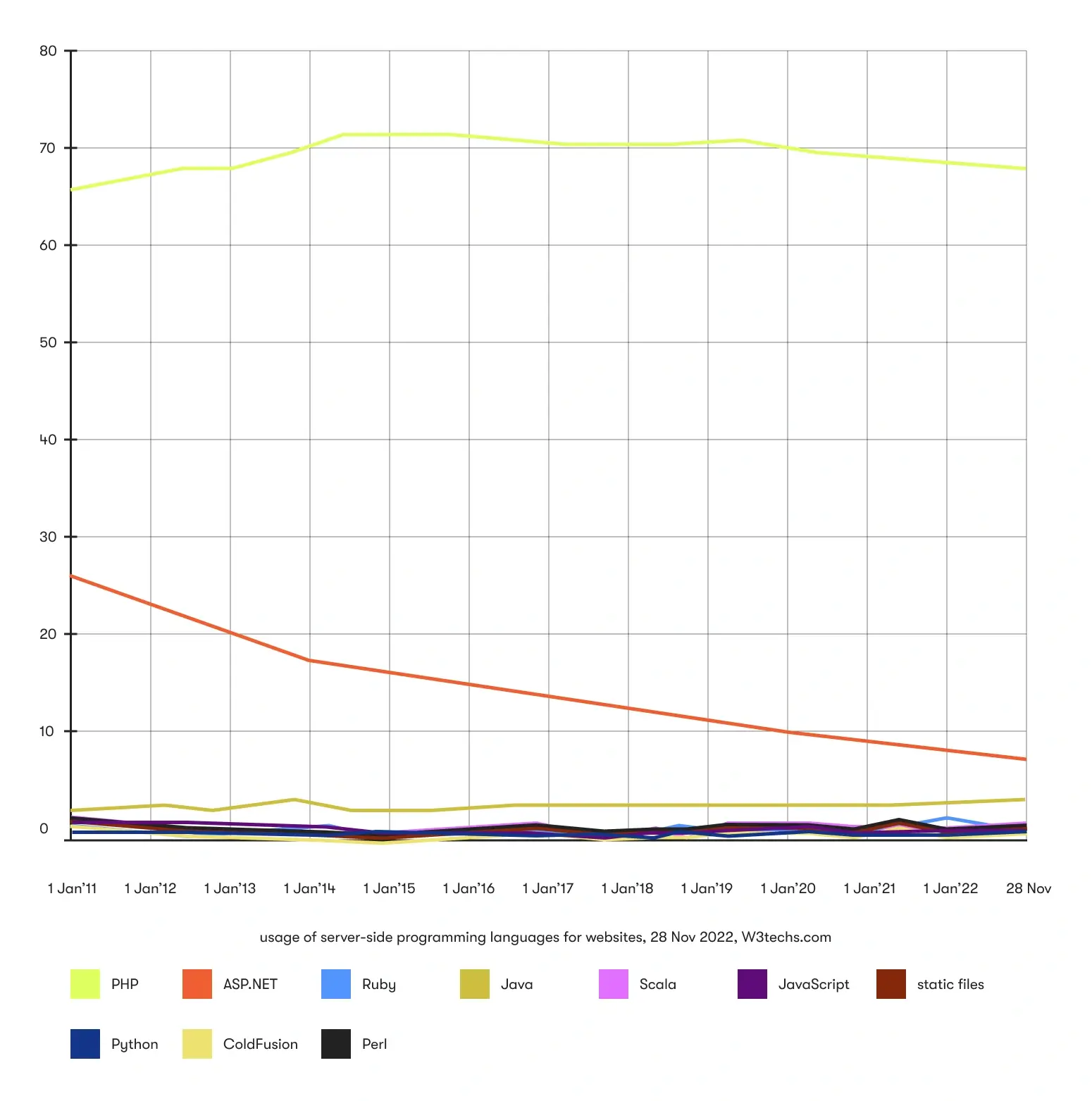
Speaking of PHP it's impossible to leave frameworks aside. Сode can be written in different ways: fast or slow, clear and readable, or poor and unsupportable. It depends on preference, skill, and background. Using frameworks helps equalize these differences. The programmer uses ready-made templates, augments them with their own code, and with their help solves business problems. Working with PHP is difficult to imagine without frameworks. With this technology, the efficiency and speed of creating websites and applications increases many times over.
In this article, we will compare two popular PHP frameworks — Laravel and Yii. Who will win in the Laravel vs. Yii battle, what are their advantages in terms of technology and business, and which framework is better to choose for your project? Read on to find out.
Laravel overview
Laravel is a free, open-source PHP framework. Laravel was developed as an assistance tool for creating complex web resources and applications. Developers with this framework can simplify such processes as authentication, work with the database, resource routing, sessions, caching, application structure, and some other functions that can improve the overall effectiveness. It requires a PHP JSON extension and can be installed via the PHP package manager.
Laravel usage statistics
The framework guarantees good performance and caching, and its driver file system retains various elements. This approach contributes to the faster development of applications of different complexity.
The main features of Laravel are:
- The ability to integrate with other platforms and libraries;
- A lot of interesting options for website and application developers;
- Built-in Eloquent ORM (object-relational mapping) system. This system makes it possible to work with different databases, which is achieved by implementing an ActiveRecord pattern;
- The platform is based on MVC architecture (model-view-controller). It assists in separating the business logic and interface for the common user. The Laravel framework also supports the engine of such templates. So here, the green light is guaranteed for native PHP code;
- Efficient handling of traffic. The more prominent the site, the greater the number of requests per second the application must accept and start processing. As the server gets a decent load, the hosting increases in price. At this rate, the server side sometimes decides not to respond, and data may be lost. Such risks are minimized with Laravel.
Yii overview
Yii is a popular framework for PHP development based on the MVC paradigm. Its main advantage is its very high speed and performance.
The community of PHP developers actively develops the framework, and it is easier to learn and use than its counterparts, which contributes to the rapid development of projects. Like all frameworks, Yii is optimized for the development of technically complex web projects such as business applications, web services, as well as websites with complicated business logic and performance requirements.
The main advantages and capabilities of the Yii framework are:
- High performance relative to other PHP frameworks;
- DAO and ActiveRecord database interfaces;
- Command-line interface;
- Scenario-based validation;
- Caching of whole pages and separate fragments;
- Interception and processing of errors;
- Form validation feature;
- Implemented authentication and authorization;
- Easy to implement AJAX interfaces and integration with jQuery;
- The framework has built-in generators for basic PHP code for CRUD generation. Thanks to a special code generator tool called the Gii, the framework is able to generate commonly used pieces of code. With its help, you not only quicken the development but also ensure the faster performance of applications;
- Yii follows the DRY (Don't Repeat Yourself) rule, which greatly improves the codebase structure;
- Support of design themes;
- Ability to connect third-party libraries;
- Handling of database migrations;
- Automated testing and development in TDD style;
- Support of REST style.
Yii vs. Laravel: performance
When it comes to Yii framework vs. Laravel in the context of performance, it is difficult to identify a clear winner. In most cases, both frameworks do a great job and don’t cause the user any inconvenience. However, in some cases, there is still a difference between Laravel and Yii.
Yii
Yii is considered to be one of the fastest PHP frameworks. When dealing with heavy workloads in real-time, it shows excellent results and allows developers to achieve an instant response.
Laravel
Laravel is believed to be a bit slower than Yii. It can, however, be accelerated by different optimization approaches such as classmap optimization, config and routes caching, plugin usage optimization, etc.
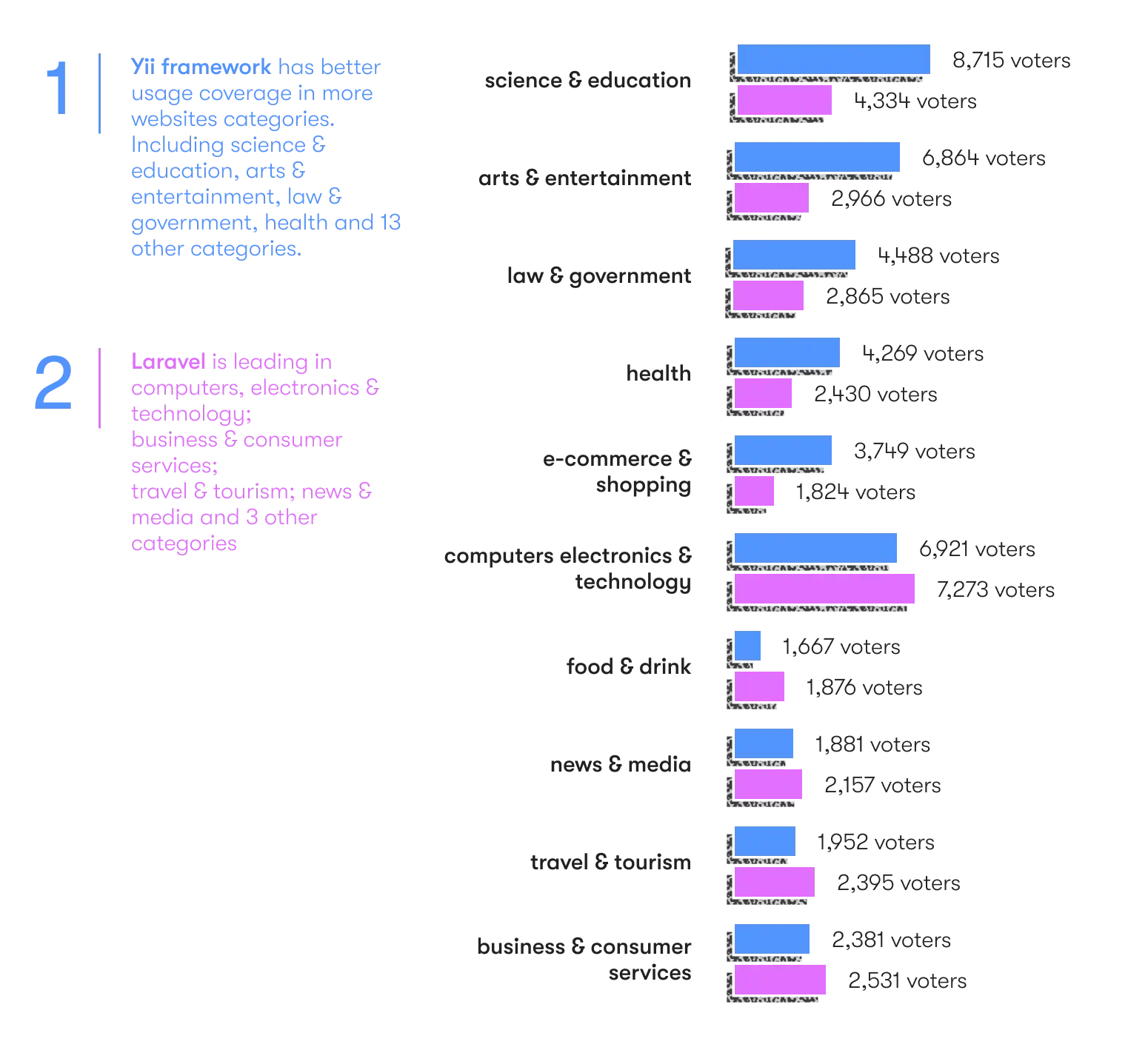
Security of Laravel vs. Yii
Both frameworks come with basic security against the most common threats. In both cases, attackers won’t be able to access sensitive information through SQL injections, CSRF, or XSS (cross-site scripting) attacks. Nevertheless, we can still compare the PHP framework Yii vs. Laravel.
Yii
Yii's security is much higher. It has built-in role-based access control, password protection, and authentication systems.
Laravel
Laravel doesn't have integrated access control tools installed by default. However, Laravel security can be increased considerably by using third-party applications and extensions. This way, you can get a high-end product with a powerful security system.
Laravel vs. Yii: emerging technologies integration
Both frameworks have a huge set of tools that can solve any developer's tasks and integrate advanced technologies such as blockchain, VR, AR, AI, ML, IoT, etc. It is enough to have an experienced development team to create any type of web product on these frameworks. But the comparison of Laravel and Yii is still relevant by this criterion.
Yii
Yii has about 2,800 extensions for any task. This is enough to implement almost any functionality using PHP.
Laravel
Laravel has over 9,000 extensions. This incredible amount gives developers a lot of flexibility to implement the functionality the business needs.
Developer salaries of Laravel vs. Yii
Using a framework rather than native code can make development work more affordable. It saves time significantly and therefore cuts costs.
Yii
According to ZipRecruiter statistics, the average salary for a Yii developer in the US is $49 per hour. That makes it a slightly cheaper option than Laravel for those looking to hire PHP developers with this specialization.
Laravel
According to ZipRecruiter's statistics, a Laravel programmer gets $59 per hour of work. This is due to the greater popularity of the framework. Therefore, a project on Laravel is slightly expensive when comparing PHP Yii vs. Laravel development.
The basis of comparison | Laravel | Yii |
Performance | Slower | Faster |
Testing | Testing requires PHPUnit with Symfony components like HttpKernel, DomCrawler, etc. | Testing requires only PHPUnit and Codeception. |
Migration | A migration class and data-filling tool are required. | Yii has all the necessary tools for data migration. |
Development cost | Less expensive | More expensive |
When choosing Yii is profitable for businesses
In the context of Laravel versus Yii, the latter has several advantages that make it an extremely attractive option for businesses. This is mainly because the framework can significantly speed up development, thus saving money and getting the product to market faster.
Yii allows developers to automate the web development process thanks to the Gii extension. It allows the automatic generation of code and speeds up the creation of standard functions. Another differentiating feature of Yii is its widgets. Widgets allow Yii developers to create ready-made interfaces in a matter of seconds and rebuild them anytime.
The framework has advanced functionality for changing the appearance of the site, as well as caching. This is why Yii is often used to develop web applications that have admin dashboards, as well as web applications with high traffic flow, such as e-commerce sites and forums.
Also, Yii's performance is better than Laravel's. This is why it is popular in cases where you need to create real-time applications, such as social networking sites, where the speed of data processing is a key factor for the audience.
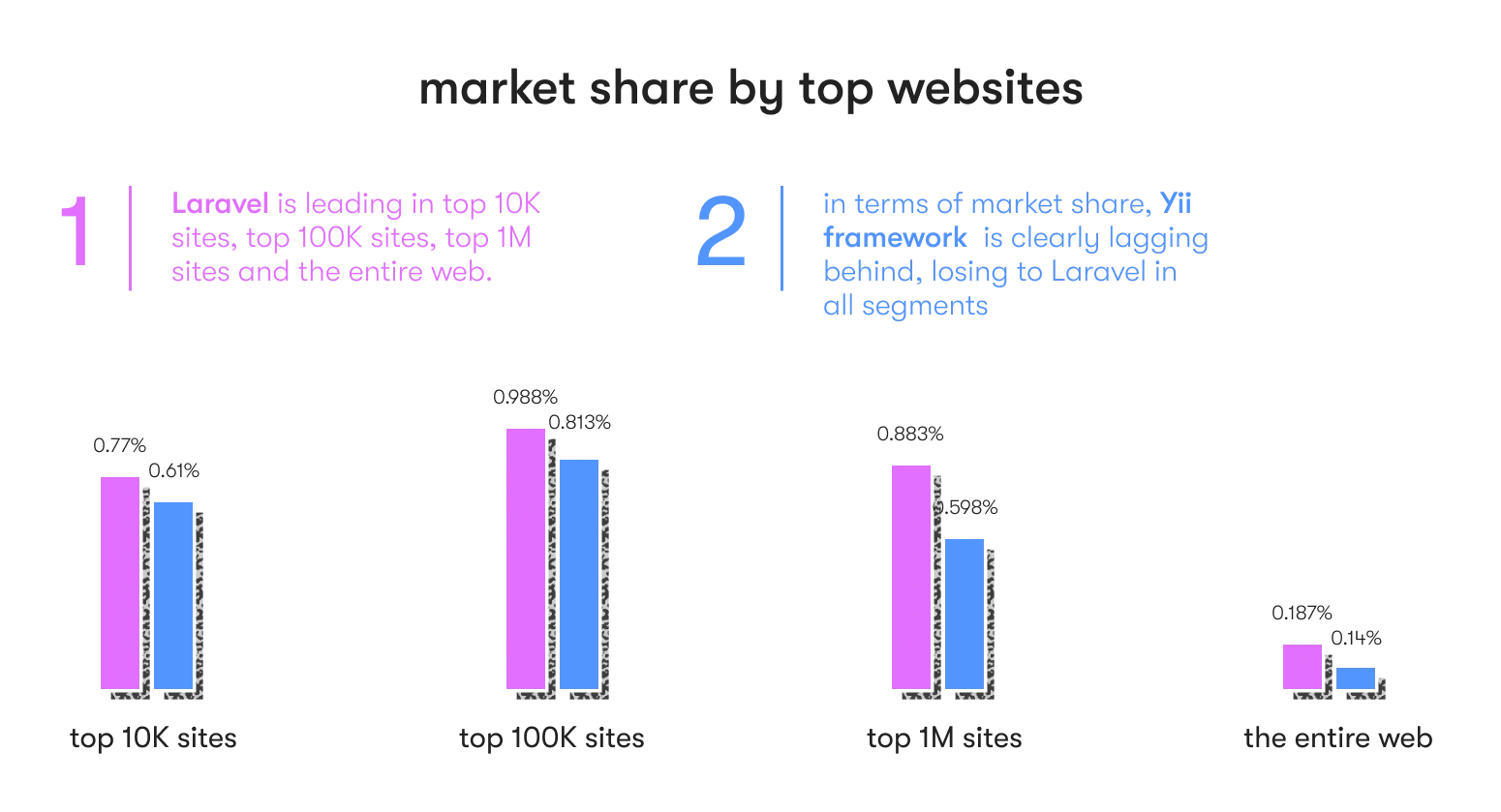
When choosing Laravel is reasonable for your product
The quick creation of sites from scratch is one of the key features of the framework. It can also be considered its main advantage. The developer becomes the owner of numerous tools which can solve problems of any complexity.
This framework is best suited for creating e-commerce websites, web applications, CMS, and ERP. With Laravel, you can quickly and easily create fairly complex enterprise-level applications. The queuing system and extensive documentation greatly help speed up the process.
One of Laravel's main areas of application development is web app development. This is especially true for database management applications on the backend. For example, this type of software includes CRM and ERP. Laravel encourages quick and easy work with databases. Developers can expand the database structure of any web application, and there is no need to make any changes to the database. This saves the company from the risk of losing any important data. The database structure can be changed even at runtime.
Conclusion
There are many nuances and peculiarities of development to consider when choosing between Yii and Laravel. A non-specialist will have to spend much time assessing the capabilities of Yii or Laravel and selecting the best solution for the project.
Laravel is the best choice for large-scale, enterprise-grade app development. It's flexible enough, and the huge number of extensions allows businesses to equip their software with almost any functionality. At the same time, Yii can be used to develop small and medium-scale web applications where responsiveness and real-time performance are key factors. Furthermore, using Yii can significantly speed up the development process and thus save time and money.
FAQ
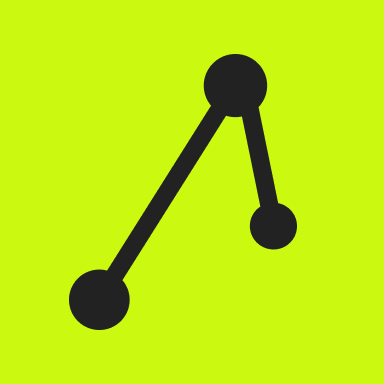
The EPAM Anywhere Editorial Team is an international collective of senior software engineers, managers and communications professionals who create, review and share their insights on technology, career, remote work, and the daily life here at Anywhere.
The EPAM Anywhere Editorial Team is an international collective of senior software engineers, managers and communications professionals who create, review and share their insights on technology, career, remote work, and the daily life here at Anywhere.
Explore our Editorial Policy to learn more about our standards for content creation.
read more

